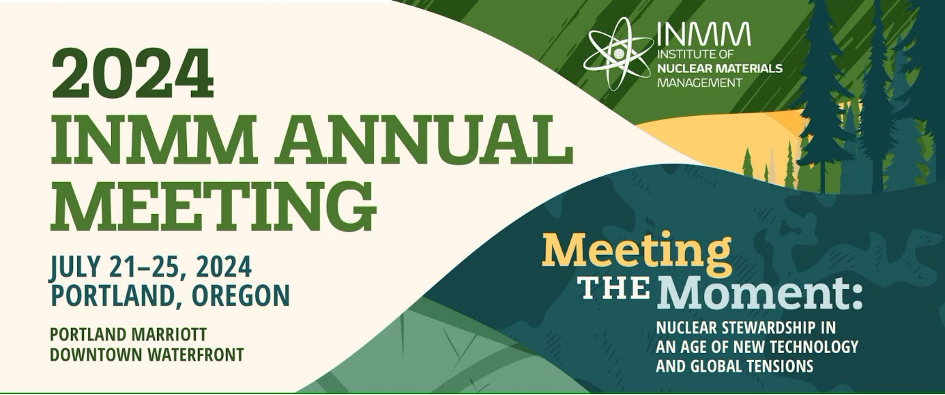VeSPoTec at INMM 2024

By Lukas Rademacher. „Meeting the Moment: Nuclear Stewardship in an Age of New Technology and Global Tensions” – under this motto technical experts in the nuclear field came together at this year’s annual meeting of the Institute for Nuclear Materials Management (INMM). Although the CrowdStrike outage made attendance more difficult than expected for many, the conference nevertheless brought together more than 600 participants from around the world in Portland, Oregon. For five days (July 21-25), they discussed how nuclear safety and security can be ensured in the face of newly emerging and established threats.
VeSPoTec members Prof. Dr. Malte Göttsche, Dr. Irmgard Niemeyer and Lukas Rademacher participated in the conference and presented research performed within the consortium in three talks:
Accountancy of fissile material stockpiles could become an important part of future arms control and disarmament agreements. Suitable verification methods can be based on the reconstruction of the production and removal histories of fissile materials – an approach known as ‘nuclear archaeology’. A central method is the reconstruction of the operational history of a nuclear reactor based on isotopic measurements of structural elements. Lukas Rademacher is conducting research to improve the existing methodology and its potential.
The existing documentation of a reactor program can potentially provide important information for reconstructing the plutonium production history. However, as this documentation is typically provided by the operating state, there is a need for independent verification. Members of the NVD research group were granted access to the archives of the former nuclear research program in Karlsruhe, Germany. They explored the types of information present in the archives and developed approaches to examine the self-consistency of the overall documentation.
In December 2023, VeSPoTec conducted a two-day tabletop exercise on safeguards-relevant information. Participants included VeSPoTec members and nine external safeguards experts. They formed three groups: the State Authority of an inspected State, the IAEA State Evaluation Group, and an evaluator group. Through role-playing, the participants explored the availability, quality and reliability of safeguards-relevant information in different safeguards scenarios. Irmgard Niemeyer presented the main findings of the exercise.
The conference provided a venue for valuable feedback and discussion, and we look forward to participating again in the future.
